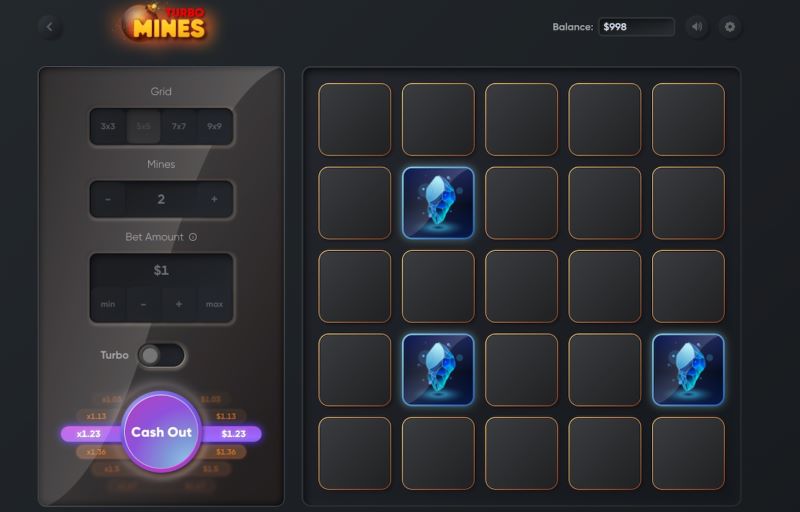
The Mathematics of Chance: Uncovering the Secrets of Casino Games

Casino games have been a staple of entertainment for centuries, with players flocking to establishments in the hopes of winning big. However, beneath the glitz and glamour of the casino floor lies a complex web of mathematical concepts that govern the outcome of each game. From the spin of the roulette wheel to the deal of the cards, mathematics plays a crucial role in determining the probability of winning and the house edge. In recent years, new games like turbo mines have emerged, offering players a unique blend of skill and chance. But what exactly is the role of mathematics in these games, and how do casinos use mathematical concepts to their advantage?
The Basics of Probability
At its core, probability is a measure of the likelihood of an event occurring. In the context of casino games, probability is used to determine the chances of winning or losing. For example, in a game of roulette, the probability of the ball landing on a specific number is 1 in 37 (or 1 in 38 in American roulette). This probability is calculated by dividing the number of favorable outcomes (in this case, the ball landing on a specific number) by the total number of possible outcomes (the total number of numbers on the wheel). In games like slots and turbo mines, probability is used to determine the likelihood of hitting a winning combination or triggering a bonus feature. By understanding probability, players can make informed decisions about which games to play and how much to bet.
Odds and House Edge
Odds and house edge are two closely related concepts that are fundamental to casino games. Odds refer to the ratio of the probability of an event occurring to the probability of it not occurring. For example, if the probability of winning a game is 1 in 10, the odds of winning are 1:9 (or 1 to 9). House edge, on the other hand, refers to the built-in advantage that the casino has over the player. This advantage is typically expressed as a percentage and represents the amount of money that the casino can expect to win over time. For example, if a game has a house edge of 5%, the casino can expect to win $5 for every $100 bet. By understanding odds and house edge, players can make informed decisions about which games to play and how much to bet.
The Mathematics of Slot Machines
Slot machines are one of the most popular casino games, with thousands of different titles available. But beneath the colorful graphics and engaging themes lies a complex mathematical framework that governs the outcome of each spin. Slot machines use a random number generator (RNG) to determine the outcome of each spin, with the RNG generating a random number between 1 and several billion. This number is then used to determine the position of the reels and the resulting outcome. By understanding the mathematics behind slot machines, players can gain insight into the likelihood of winning and the house edge. For example, a slot machine with a high volatility (or variance) may offer bigger wins, but less frequently, while a slot machine with a low volatility may offer smaller wins, but more frequently.
The Mathematics of Table Games
Table games like blackjack, craps, and roulette are also governed by mathematical concepts. In blackjack, for example, the probability of winning depends on the player's strategy and the number of decks used. By using basic strategy, players can reduce the house edge to less than 1%, making blackjack one of the most favorable games for players. In craps, the probability of winning depends on the type of bet placed, with some bets offering a much higher house edge than others. By understanding the mathematics behind table games, players can make informed decisions about which games to play and how to bet.
The Role of Mathematics in Casino Game Development
Mathematics plays a crucial role in the development of new casino games. Game developers use mathematical concepts like probability, odds, and house edge to create games that are both engaging and profitable. By understanding the mathematical framework of a game, developers can adjust the odds and house edge to create a game that is appealing to players while still generating revenue for the casino. For example, a game developer may use mathematical modeling to determine the optimal payout structure for a new slot machine, or to create a game with a unique blend of skill and chance, like turbo mines.
The Impact of Mathematics on Casino Game Strategy
Mathematics also plays a crucial role in casino game strategy. By understanding the mathematical concepts that govern a game, players can develop strategies that maximize their chances of winning. For example, in blackjack, players can use basic strategy to reduce the house edge and increase their chances of winning. In poker, players can use mathematical concepts like probability and odds to make informed decisions about which hands to play and how much to bet. By understanding the mathematics behind casino games, players can gain a competitive edge and increase their chances of winning.
Conclusion
In conclusion, mathematics plays a vital role in casino games, from the spin of the roulette wheel to the deal of the cards. By understanding mathematical concepts like probability, odds, and house edge, players can make informed decisions about which games to play and how much to bet. Game developers also use mathematical concepts to create games that are both engaging and profitable. Whether you're a seasoned gambler or just starting out, understanding the mathematics behind casino games can help you navigate the complex world of chance and increase your chances of winning. So next time you're at the casino, take a moment to appreciate the mathematics that governs the games, and who knows, you may just find yourself winning big on a game of turbo mines.
- Unlocking the Secrets of the City
- Winbd App Download - Start Playing Now!
- Upcoming sporting events and their impact on society
- The King of Pop 8888 Platform: Where Luck and Skill Come Together in Perfect Harmony
- How to Recognize and Avoid Problem Gambling in Online Casinos




